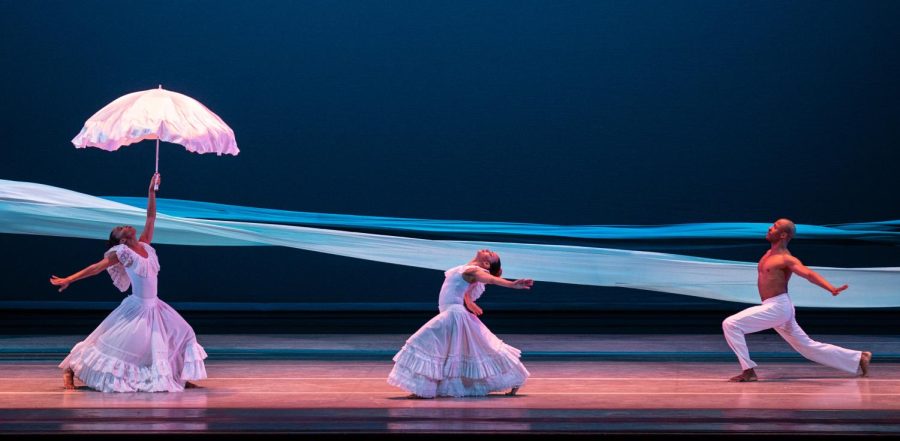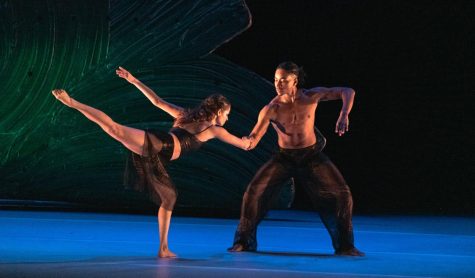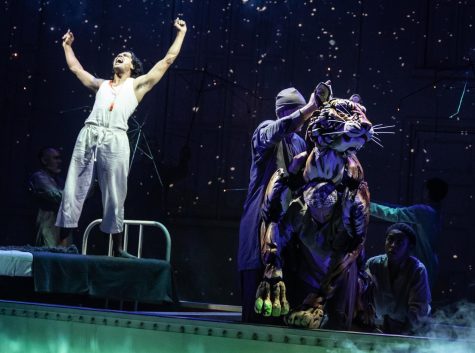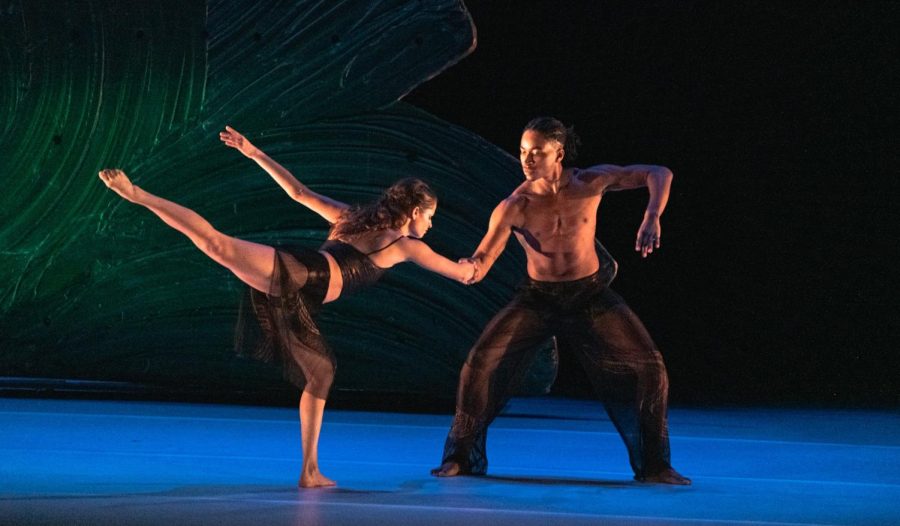Somerville author Andrew Krivak joins prestigious list with ‘The Bear’
Fable about teen learning to survive in nature named by National Endowment for the Arts to its Big Read list
Raider Times photo / Courtesy Sharona Jacobs
Somerville author Andrew Krivak talked with the Raider Times about his latest work, “The Bear.”
November 25, 2021
A Boston-area author’s fable about a teenage girl learning to survive in nature after a global catastrophe was one of 15 books honored by the National Endowment for the Arts in its 2022-23 Big Read list.
“The Bear,” by Andrew Krivak of Somerville, tells the tale of a girl who, after losing her father on a journey to the sea, treks back to her mountain home with help from a bear.

The novel’s setting is inspired by the Monadnock region of New Hampshire, where Krivak has his second home.
“Every time I go there it’s so surprisingly and subtly beautiful, and that’s why I wanted to put those last two [humans] there.”
The independent National Endowment for the Arts, which was established by the federal government in 1965, offers grants to organizations that run events and programs around the annual Big Read list of books. Previous selections include “To Kill a Mockingbird” by Harper Lee, “The House on Mango Street” by Sandra Cisneros, and “True Grit” by Charles Portis, but the NEA also chooses books that have more contemporary themes, in this case, the environment.
“It’s a cautionary tale about the very present-day issue of climate change, but it’s couched in the old-style narrative,” said Krivak. “It should, through the imagination, get people to sit up and think about what’s really happening and what’s really possible.”
The emotional novel “probes the depths of human loss,” with mythological and religious anecdotes strung throughout, a topic of particular interest to Krivak, a former Jesuit.
“In the Genesis myth of Judeo-Christian history, it’s a man we’re told who was the first, so I thought it would be quite appropriate to have a woman be last,” he said.
Krivak’s previous works include his debut novel, “The Sojourn” (2011), a finalist for the National Book Award in Fiction, as well as winner of the Chautauqua Prize and the Dayton Literary Peace Prize. The Sojourn’s sequel, “The Signal Flame” (2017), was a finalist for the Chautauqua Prize.
In his new novel, Krivak highlighted how bears have historically symbolized a creature both like humans and nature.
“Nature is the real protagonist,” said Krivak. “The bear was a necessary vehicle for that veil that lifts between humans and nature when the girl is the last human left…. He’s the bearer.”
As well as symbolizing a guide, the bear’s connection with the girl recalls the relationship with her father.
“I would imagine that would be kind of cool to sort of have her look over at the bear and see her father,” said Krivak.
As for the girl being a young teenager, Krivak hopes that when teens read “The Bear,” they will see how “there is a way of living harmoniously and happily within nature.”
Krivak encourages teen writers to “read as much as you possibly can,” and take advice as tools for editing and rewriting.
“It’s a manageable task to take what someone suggests and say, ‘OK.’ It’s like an arrow in your quiver and so that when you go out hunting you always have those arrows that you’re shooting at your target with.”
–Nov. 25, 2021–




















